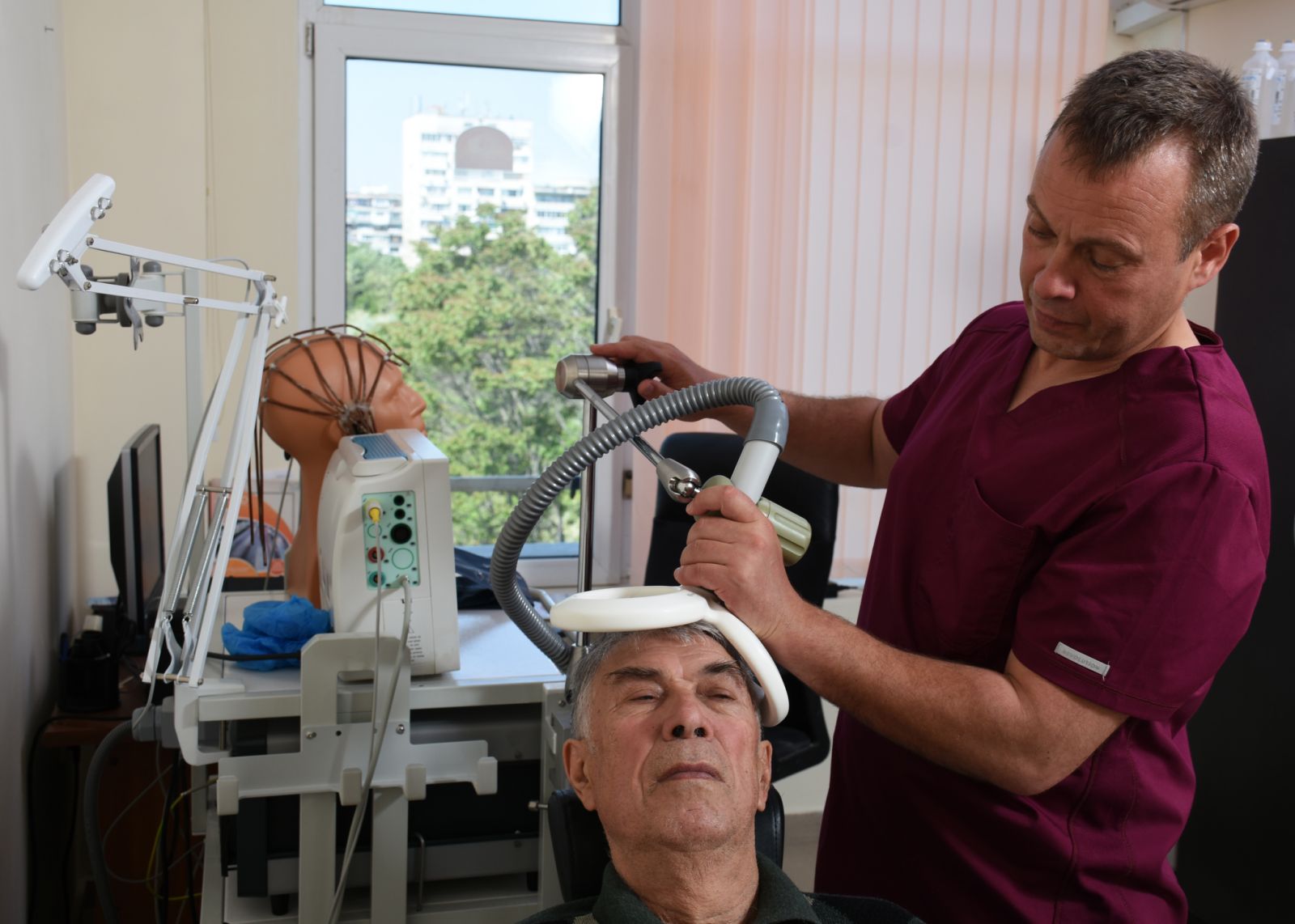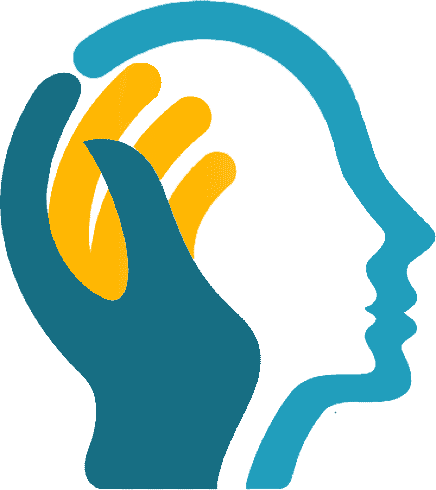Services
Treatment of psychiatric disorders; psychotherapy; methadone maintenance program; consultations for problematic use of alcohol, marihuana, opiates, stimulants; transcranial magnetic stimulation (rTMS)

Diagnostic consultations and treatment of mental disorders
Initial assessment of mental health problems, assessment of individual psychosocial needs, forming a diagnosis, prescribing medicines if necessary, referring to another medical facility or specialist and planning further treatment, support and care.
+359 887 963 557
Д-р Василев
Counselling and psychotherapy
Individual, family and group counselling of teenagers with problematic behaviour (aggression, addictions) and people with anxiety disorders, depressive disorders, obsessive disorders, panic attacks, phobias, etc.
+359 885 994 241
Д-р Търпоманова
Diagnostic consultations and treatment of substance abuse or addiction
Outpatient detoxification with medicines, brain stimulation and psychotherapy – a package service
Treatment is carried out under the supervision of a psychiatrist with medicines purchased by the patient. The package service includes daily intake of medicines, mandatory urine testing, one-on-one and/or group therapy, psychosocial rehabilitation and transcranial magnetic stimulation. In case of psychiatric comorbidities, after an examination by a psychiatrist in the medical centre, the relevant pharmacotherapy is provided.
Treatment of heroine dependent patients with naltrexone (Revia, Adepend) – a package service
This treatment plan is intended for patients who have completed the treatment with opioid agonists or agonist-antagonists (methadone, Substitol, Buprenorphine and others). It is also used after clinical or home detoxification. The patient must not have taken opioids for 5 days at least. The treatment starts after a negative test for psychoactive substances. The primary medicine that is used and the patient buys is naltrexone (it is available in pharmacies under the brand names: Nalorex, Revia, Adepend). The package service includes daily intake of medicines, mandatory urine testing, one-on-one and/or group therapy, psychosocial rehabilitation and transcranial magnetic stimulation.
Counselling and psychotherapy
Psychotherapy is one of the three main pillars in the management of addicted patients, according to contemporary treatment views. Along with medical therapy and social rehabilitation it is a crucial factor in the comprehensive approach to the treatment of mental health disorders.
The Centre offers individual, group and family psychotherapy. We mainly use cognitive behavioural therapy and positive psychotherapy, motivational interviewing and psychodrama. Psychotherapy is applied either as a separate method or as part of an integrated treatment with medicines, psychosocial rehabilitation and transcranial magnetic stimulation.
+359 887 963 557
Д-р Василев
Diagnostic consultations and treatment of alcohol abuse and dependence
Outpatient detoxification with medicines, brain stimulation and psychotherapy – a package service
Following a detailed examination by a psychiatrist, the patient and their family receive a timetable for the intake of medicines at home, as well as prescriptions so they can buy them from a pharmacy. Some IV infusions might also be prescribed. After a two-week home treatment the alcohol dependent person starts attending the Centre at regular intervals as recommended by the medical team. The package service includes daily (hourly) intake of medicines under the supervision of the family, individual and/or group psychotherapy, psychosocial rehabilitation and transcranial magnetic stimulation. In case of psychiatric comorbidities, after an assessment by the programme psychiatrist, the relevant pharmacotherapy is provided.
Individual and family counselling
+359 887 963 557
Д-р Василев
Treatment with opioid agonists and agonist-antagonists (methadone treatment programme)
The primary medicine that is used is methadone. It is provided by the Centre. The main treatment approaches are two: detoxification with methadone and maintenance methadone treatment.
The therapy with this opioid agonist can be divided into the following stages:
1. Intensive stabilisation phase
2. Commitment and rehabilitation phase
3. Medical maintenance phase
4. Opioid detoxification phase
5. Support phase – when patients reach zero doze of methadone they continue receiving support from the programme in order to maintain a stable lifestyle and prevent relapse and/or they transition to one of the other treatment programmes: home detoxification, naltrexone maintenance treatment, supportive psychotherapy, transcranial magnetic stimulation, etc.
The package service includes daily intake of medicines, mandatory urine testing, one-on-one and/or group therapy, psychosocial rehabilitation and transcranial magnetic stimulation.
In case of psychiatric comorbidities, after an assessment by the psychiatrist, the relevant pharmacotherapy is provided.
+359 887 963 557
Д-р Василев
Transcranial magnetic stimulation (rТМS) in neurology and psychiatry
It is a modern technique with a direct recovery and neuro-modulation impact on the brain structures using electromagnetic pulses. This is a computer-controlled high-tech device developed by a leading European producer. The methodology has been created following extensive clinical trials. It is used in almost all psychiatric and neurology clinics in the USA, Canada, Australia, Italy, Germany, Israel, Russia and many other countries.
TMS is a painless technique with few to no side effects which was initially introduced into the clinical practice to diagnose neurological disorders. Today it is widely used both for treatment and neuro rehabilitation. The only contraindications to TMS are metal objects in the head (electrodes, plates) or pacemakers. Repetitive transcranial magnetic stimulation is the only acceptable therapeutic method for pregnant and breastfeeding patients with mental disorders, according to world guidelines.
A significant effect is observed in treatment-resistant mental health disorders. The treatment can be combined with pharmacotherapy by reducing the doses or without any medicines.
TMS is a good choice in patients who cannot take medicines due to negative side effects, allergies, intolerance or due to pharmacophobia.
The high efficacy of TMS has been demonstrated in numerous clinical trials. The fact that this method has become widely popular in the university hospitals in Europe, USA and almost all countries with advanced healthcare speaks for itself.
Clinical efficacy is observed in patients with the following disorders:
Psychiatry:
1. Depressive disorders and manic syndrome in affective disorders;
2. Anxiety disorders (obsessive-compulsive disorder, generalised anxiety disorder, anxiety-depressive disorder, panic disorder, reactions to stress and others);
3. Schizophrenia: positive and negative symptoms;
4. Alcohol dependence and substance addiction (narcotic substances: cocaine, amphetamines, methamphetamines, marijuana);
5. Severe anxiety and insomnia;
6. Different types of dementia (Vascular dementia, Alzheimer's disease, Parkinson’s dementia, etc.);
7. Burnout syndrome (occupational burnout);
8. Autistic spectrum disorders (ASD);
9. Attention deficit hyperactivity disorder (ADHD);
10. Tourette's syndrome.
Neurology:
1. Acute ischemic stroke: The method is particularly effective after stroke. After TMS treatment an increase in the range of motion of the affected limbs is observed as well as improvement in speech, vision, swallowing and blepharospasm. It can also have a positive impact on strokes that occurred long time ago.
2. Demyelinating disorders of the nervous system (multiple sclerosis, cerebral palsy and others);
3. Neuropathic pain;
4. Tinnitus (noise in the ears);
5. Epilepsy (particularly the treatment resistant forms);
6. Migraine;
7. Alzheimer’s disease;
8. Parkinson’s disease;
9. Dystonia. Writer’s cramp;
10. Tremors.
+359 887 963 557
Д-р Василев
Грижа за психичното здраве на работното място. Профилактика на бърнаут.
Психичното здраве на работещите се оценява като важен проблем от всички заинтересовани страни. Влошеното психично здраве на служителите води до сериозни здравни и социални последици за тях и техните семейства, а за работодателите това означава намалена производителност и ефективност.
За работодателите цената на влошеното психично здраве и наличие на бърнаут сред служителите се изразява в отсъствия от работа, непродуктивно присъствие и загуба на производителност. За тях е важно да знаят как рискът да бъде смекчен, как да се насърчават психичното здраве и благополучие, как да се управляват процесите на завръщане на работа и как да се подхожда към процесите на набиране на работна ръка при хора с психични проблеми.
За служителите това също има цена- здравна помощ, загуба на възнаграждение, здравни и социални последици от срива в психичното здраве. Съществуват и проблеми по отношение на стигмата, възстановяването и реинтеграцията на пазара на труда, които придобиват особено значение при влошаване на психичното здраве.
В тази връзка, екипът на МЦ „Терапия 2007“ предлага:
1. Психологическа подкрепа във връзка с превенция и профилактика на стреса на работното място и професионалното прегаряне (бърнаут). Тя включва:
1.1 Изследване и оценяване на параметри на психичното здраве а работещите чрез стандартизирани въпросници и анализ на резултатите
1.2 Групова работа със служителите под формата на информационни тренинг- групи в посока превенция на бърнаут и изграждане на конструктивни копинг- стратегии за справяне със стреса
1.3 Индивидуална работа с мениджърския екип в посокаприлагане наконкретни методики и дейности за подобряване на психичното здраве на служителите, повишаване на мотивацията за работа и снижаване на риска от развитието на бърнаут.
2. Интервенции при установяване на конкретни психологични проблеми (психиатрични и психологични консултации)
+359 885 994 241
Д-р Търпоманова
Речева и езикова рехабилитация
Логопедична терапия, включваща:
- Консултативна дейност и оценка на езиково-говорното състояние на деца и възрастни.
- Индивидуална логопедична терапия при нарушения в звукопроизношението.
- Индивидуална логопедична терапия при забавено говорно развитие с различна етиология.
- Индивидуална логопедична терапия при нарушения плавността на речта.
- Индивидуална логопедична терапия при нарушения в писмена реч.
- Индивидуална логопедична терапия при различни невродегенеративни заболявания, нарушения в гълтането и други, водещи до затруднена комуникация и социална адаптация.
- Индивидуална логопедична терапия при афатични състояния след преживян инсулт.
- Изграждане на индивидуални терапевтични планове, при необходимост екипна работа с определяне на водещ специалист.
- Консултиране и обучение на родители.
+359 887 963 557
Д-р Василев
